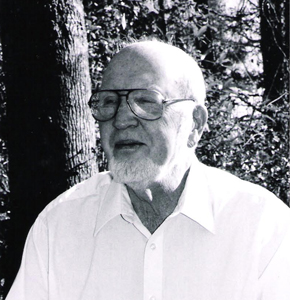 This Goodly Land
This Goodly Land
Madison Jones (March 21, 1925–present)

Other Names Used
- Madison Percy Jones, Jr.: full name
Alabama Connections
- Auburn, Lee County: adult residence
Selected Works
- Jones, Madison. The Innocent. New York: Harcourt, Brace, 1957. Rpt. Nashville: J. S. Sanders, 1993.
- Jones, Madison. A Buried Land: A Novel. New York: Viking Press, 1963. Rpt. Sag Harbor, N.Y.: Second Chance Press, 1987.
- Jones, Madison. An Exile. New York: Viking Press, 1967. Rpt. as I Walk the Line. New York: Popular Library, 1967. Rpt. Savannah: Frederic C. Beil, 1990. Rpt. Savannah: Frederic C. Beil, 2005.
- Jones, Madison. A Cry of Absence: A Novel. New York: Crown Publishers, 1971. Rpt. Baton Rouge: Louisiana State University Press, 1995.
- Jones, Madison. Last Things: A Novel. Baton Rouge: Louisiana State University Press, 1989.
- Jones, Madison. Nashville 1864: The Dying of the Light: A Novel. Nashville: J. S. Sanders, 1997.
- Jones, Madison. Herod’s Wife: A Novel. Tuscaloosa: University of Alabama Press, 2003.
- Jones, Madison. The Adventures of Douglas Bragg: A Novel. Knoxville: University of Tennessee Press, 2008.
Literary Awards
- Alabama Author Award, Alabama Library Association, 1968, for An Exile
- Andrew Lytle Prize for Best Short Story, Sewanee Review, 1992, for "Zoo"
- Michael Shaara Award for Civil War Fiction, United States Civil War Center, 1997
- T. S. Eliot Award for Creative Writing, Rockford Institute for the Ingersoll Foundation, 1998
- Harper Lee Award for Alabama’s Distinguished Writer, 1999, Alabama Writers’ Forum and Alabama Writers Symposium
Biographical Information
Madison Jones was born in Nashville, Tenn. When he was six, his family moved in with his maternal grandparents in Belle Meade, a Nashville suburb. He grew up listening to Bible stories, Civil War reminiscences, and folk tales. When he was thirteen, his father bought a farm north of Nashville, and Jones spent his summers working there. After finishing high school, he began attending Vanderbilt University but quit to work on the farm. He was drafted and served in the U.S. Army Corps of Military Police from 1944 to 1946. After his discharge, Jones returned to Vanderbilt, where he became interested in writing and studied under Donald Davidson, earning his AB in 1949. After graduation, he returned to the farm to decide what he should do next. His family disapproved of writing as a career and he loved farming and the outdoors, but, after nearly a year, he decided to continue his education.
Jones studied under Andrew Lytle at the University of Florida, earning his MA in 1951. He completed coursework for a doctorate but left without completing his dissertation. Jones taught at Miami University of Ohio from 1953 to 1954. A Sewanee Review fellowship in 1954 enabled him to write his first novel, The Innocent, published in 1957. Jones taught writing at the University of Tennessee at Knoxville from 1955 to 1956, then joined the English department of Auburn University where he remained until his retirement in 1987. He was awarded a Rockefeller Foundation fellowship in 1968 and a Guggenheim Fellowship in 1973. His novel An Exile was made into the movie I Walk the Line in 1970. Jones continues to live in Auburn, Ala., and has a small farm outside the city.
Interests and Themes
Madison Jones is a writer who emerged from the Agrarian tradition in Southern literature. Many of his novels contain Biblical and classical imagery and focus on Calvinistic morality, depicting the loss of innocence to sin, the suffering that results, and redemption by confession and penance.
For More Information
Please check your local library for these materials. If items are not available locally, your librarian can help you borrow them through the InterLibrary Loan program. Your librarian can also help you find other information about this author.
There may be more information available through the databases in the Alabama Virtual Library. If you are an Alabama citizen, AVL can be used at your public library or school library media center. You can also get a username and password from your librarian to use AVL at home.
Reference Books
- Gretlund, Jan Nordby. Madison Jones' Garden of Innocence. Odense M: University Press of Southern Denmark, 2005.
Reference Articles
- "Madison Jones Special Issue". Chattahoochee Review 18.1. (1996).
- Jeffrey, David K., and Donald R. Noble. "Madison Jones: An Interview". Southern Quarterly 21.3. (1983): 5-26.
Reference Book Chapters and Encyclopedia Entries
- Caton, Bill. "Madison Jones: The Very Best Effort"; Fighting Words: Words on Writing from 21 of the Heart of Dixie's Best Contemporary Authors. Montgomery: Black Belt Press, . 72-79.
Reference Web Sites
- Core, George. "Madison Percy Jones 1925-". Tennessee Encyclopedia of History and Culture. 2002. Tennessee Historical Society. http://tennesseeencyclopedia.net/imagegallery.php?EntryID=J033.
Photo by Katie Lamar Jackson; courtesy of the Caroline Marshall Draughon Center for the Arts & Humanities in the College of Liberal Arts, Auburn University.
Last updated on May 30, 2008.